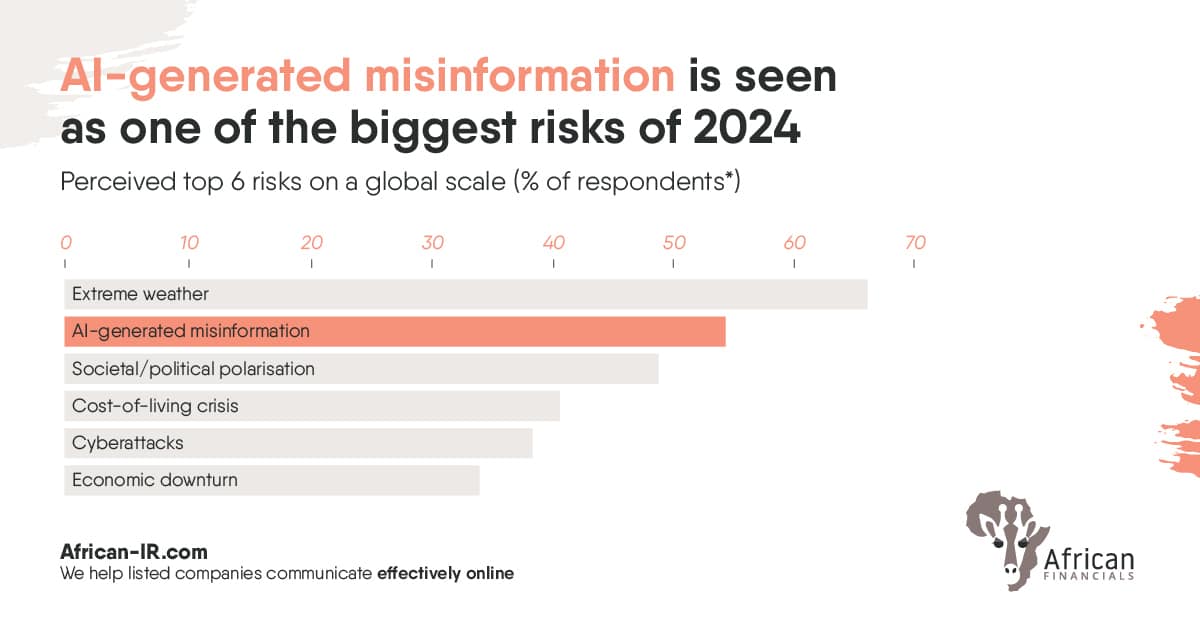
An email alert service that utilises a company’s own domain, as opposed to a third-party domain, offers several significant advantages, particularly in the context of investor and stakeholder relations and overall corporate communication. Here are some key benefits:
Brand Consistency and Recognition
- Unified Branding: Emails sent from the company’s domain reinforce brand identity. Consistent use of the corporate domain across all communication channels strengthens brand recognition. A third-party vendor standardises email aesthetics across all clients.
- Professional Image: Emails from a company’s domain appear more professional and credible compared to third-party domains, which can sometimes be associated with spam or promotional content. A third-party vendor standardises email aesthetics across all clients and cannot easily facilitate imagery specific to a company.
Trust and Credibility
- Security Assurance: Using your company’s domain can enhance the perceived security of the communication. Stakeholders are more likely to trust and open emails that come from a recognized and official source. Loyalty and trust should be directly with your company email address and not others’.
- Reduced Risk of Phishing: Emails from a familiar domain reduce the risk of being flagged as phishing attempts, ensuring important communications reach their intended recipients.
Control Over Content and Delivery
- Customisation and Personalisation: Direct control over the email service allows for greater customisation and personalisation of content, which can be tailored to meet the specific interests and needs of stakeholders. In our investor relations email alerts, the body of emails includes trading data, valuation paramaters (daily), the share chart and more: services not readily available from third parties.
- Timely Delivery: Ensuring timely delivery of crucial information, particularly for investor relations where timely updates can impact investment decisions. In crisis communications this is critical: the ability to blast communications far and wide, even after hours.
Data Privacy and Compliance
- Confidentiality: Using an internal domain enhances confidentiality, as sensitive financial information and shareholder communications are handled within the company’s controlled IT environment. Using a third-party to manage confidential information should be done under NDA and they should be subject to insider trading rules.
- Compliance with Regulations: Using your own email-registered platform ensures adherence to data protection and privacy regulations, as the company can implement and maintain its own standards for data handling and security. What is the third party’s liability if they send something incorrectly? It gets complicated.
Analytical Insights
- Tracking and Analytics: Sending emails from the company’s domain allows for better tracking of open rates, click-through rates, and engagement, providing valuable insights for refining communication strategies. These data points will most likely be referenced at different times of the day and so live dashboards of data is the best way to present this. These dashboards are typically combined with other company-specific analytics (social media etc) providing convenience of centrality and 24/7 access: functionality not available on third party email platforms.
- Feedback Mechanism: Direct communication channels enable better feedback collection from stakeholders, which is essential for improving IR practices and other corporate communications. Its best to have dedicated staff responding to email feedback, not third parties.
Long-term Relationship Building
- Direct Engagement: Direct email communication fosters a sense of direct engagement and relationship building with investors and other stakeholders. Overtime these communities can grow to be large. One in four emails are opened on average. This is meaningful engagement.
- Consistent Communication Channel: Email alerts for stakeholder and investor relations establish a consistent and reliable channel for ongoing communication, which is essential for maintaining long-term relationships with stakeholders.
Conclusion
Utilising the company’s domain for email alerts is more than a technical preference; it’s a strategic decision that aligns with maintaining a professional image, enhancing stakeholder trust, ensuring data security, and building long-term relationships with key stakeholders. In the realm of investor relations, where trust and timely, reliable communication are paramount, using the company’s own domain for email alerts is particularly beneficial.
If you’re looking to improve your investor relations and stakeholder communications, consider implementing an email alert service that utilises your company’s domain. By doing so, you can reap the many benefits outlined in this article, including enhanced brand consistency and recognition, improved trust and credibility, greater control over content and delivery, stronger data privacy and compliance, more comprehensive analytics and feedback mechanisms, and the establishment of a consistent and reliable communication channel.
Turnkey, communications solutions for every listed company in Africa
Speak to us about IR solutions for your company
Speak to us about IR solutions for your company
AfricanFinancials works with Boards, CEOs and companies who want to build sustainable businesses through better corporate and investor communications. Our focus is online investor relations to promote secure two-way communications with investors and stakeholders.


